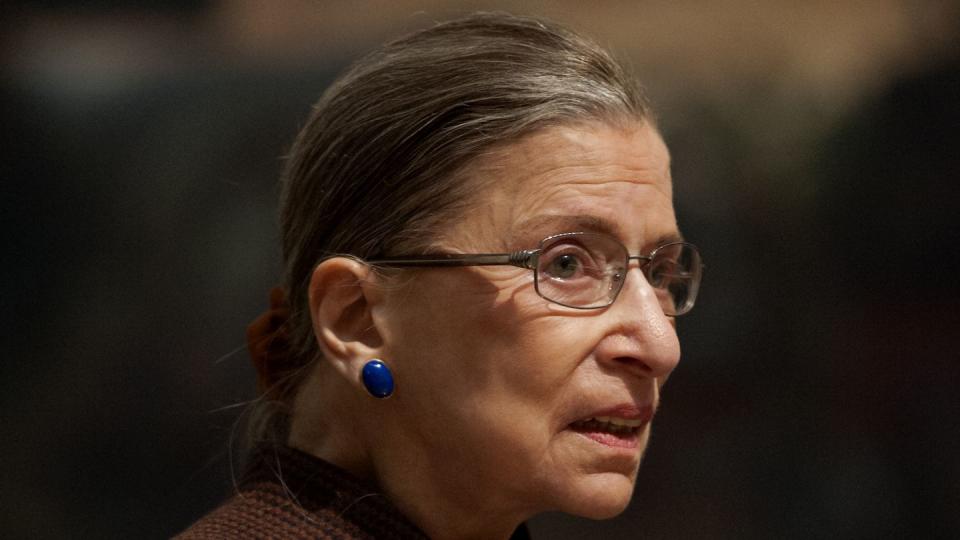Supreme Court Just Screwed American Workers

We have entered frantic season at the Supreme Court. All the major cases argued this term and not yet decided are going to come in one big rush over the next few weeks as the Nine Wise Souls get their business done in a hurry before going off to Six Flags Over Perpetuties, or wherever it is that Supreme Court justices go for hot summer fun.
The first of these opinions was handed down on Monday and, if any innocent souls still were wondering why the Republicans hijacked a Supreme Court nomination away from the previous administration, they can wonder no longer. The Republicans-and, especially, the donor class that insulates the Republicans from the electoral consequences of their political malpractice-saw that maneuver pay off handsomely.
The decision came in a case titled Epic Systems v. Lewis, which was actually three cases folded into one for the purposes of deciding a single issue-whether or not a company can include in an employment contract a clause that, in the case of disputes between employees and management, not only forces the employees into individual arbitration, but also forces the employees to waive any right to resolve those disputes in court.
This is a massive win for employers and an equally massive loss for workers. The decision essentially bans class-action lawsuits on behalf of employees. The 5-4 decision was read by Justice Neil Gorsuch, the beneficiary of that Republican power play, and a judge whose attitude toward the rights of organized labor-and, indeed, any individual working man-resides somewhere between those of Henry Frick and Caligula. This, you may recalls, is the fella who once issued a dissent supporting a company’s right to fire a truck driver who abandoned his rig to avoid freezing to death. This is a cold and unempathetic man.

At issue was whether these arbitration clauses violated the provisions of the National Labor Relations Act that allowed for workers to join together for “mutual aid and protection.” Gorsuch, writing for the majority, produced another masterpiece in this Court’s ongoing series of decisions that do not recognize in the slightest how the real world actually works. Forced arbitration, a system based on a 2001 Supreme Court decision that arguably misinterpreted a 1925 federal law, is a system rigged in many ways against an individual employee with a real grievance.
One example of how these work in the real world that is prominently in the news has to do with the crimes of Harvey Weinstein. Many of his victims had these clauses in their contracts and, when the revelations of Weinstein’s offenses became public and the #MeToo movement took off, the way that forced-arbitration clauses had been used to stifle his victims’ complaints became a serious casus belli. In fact, every state attorney-general in the country is on record as demanding that Congress do something to rein in the system. This is pretty much what Gorsuch relied on in his decision.
"The policy may be debatable but the law is clear: Congress has instructed that arbitration agreements like those before us must be enforced as written. While Congress is of course always free to amend this judgment, we see nothing suggesting it did so in the NLRA-much less that it manifested a clear intention to displace the Arbitration Act. Because we can easily read Congress's statutes to work in harmony, that is where our duty lies."
Bloodless. Freeze in your truck.
Justice Ruth Bader Ginsberg read her dissent from the bench, which is not the usual way things are done on the Court. She pointed out that the Arbitration Act cited by Gorsuch was passed in 1925, before organized labor had come to its full power and before federal labor laws had been proposed, let alone enacted. She also looked at the political landscape of the country and concluded, rightly, that Gorsuch’s reasoning applied to a land that exists only in his imagination.
To explain why the Court’s decision is egregiously wrong, I first refer to the extreme imbalance once prevalent in our Nation’s workplaces, and Congress’ aim in the NLGA and the NLRA to place employers and employees on a more equal footing.

She then went on to trace the long struggle for worker’s rights in this country. She gave the Court a lesson in “yellow-dog” contracts and what they meant in the past. And she was quite clear that, given the untrammeled greed of the modern American corporation, this decision is a short route back to the bad old yellow-dog days, something nobody who is conscious in this new Gilded Age can credibly dispute.
Once again, the Court ignores the reality that sparked the NLRA’s passage: Forced to face their employers without company, employees ordinarily are no match for the enterprise that hires them. Employees gain strength, however, if they can deal with their employers in numbers. That is the very reason why the NLRA secures against employer interference employees’ right to act in concert for their “mutual aid or protection.”…Employees’ rights to band together to meet their employers’ superior strength would be worth precious little if employers could condition employment on workers signing away those rights.
This latter consideration is, of course, the whole point of making sure Barack Obama didn’t get to appoint an associate justice and the whole point of installing the likes of Neil Gorsuch in the chair you kept empty for him.
In the real world, if an employer cheats an employee out of $500 in overtimes, the employee alone can’t afford the fight to get it back, largely because the employee has been cheated out of $500 in overtime pay. But that employee once had the option of joining with his fellow cheat-ees and, together, they had something of a fair shot.
Gorsuch and his four colleagues now have made that impossible which, as we said, is the whole point. This decision now will be used to roll back more than just salaries. (Somebody is bound to use this decision to fight a sexual-harassment suit and, at that point, there will be serious hell to pay.) Hey, pal, Neil Gorsuch said again, go freeze in your truck.
Respond to this post on the Esquire Politics Facebook page here.
You Might Also Like

